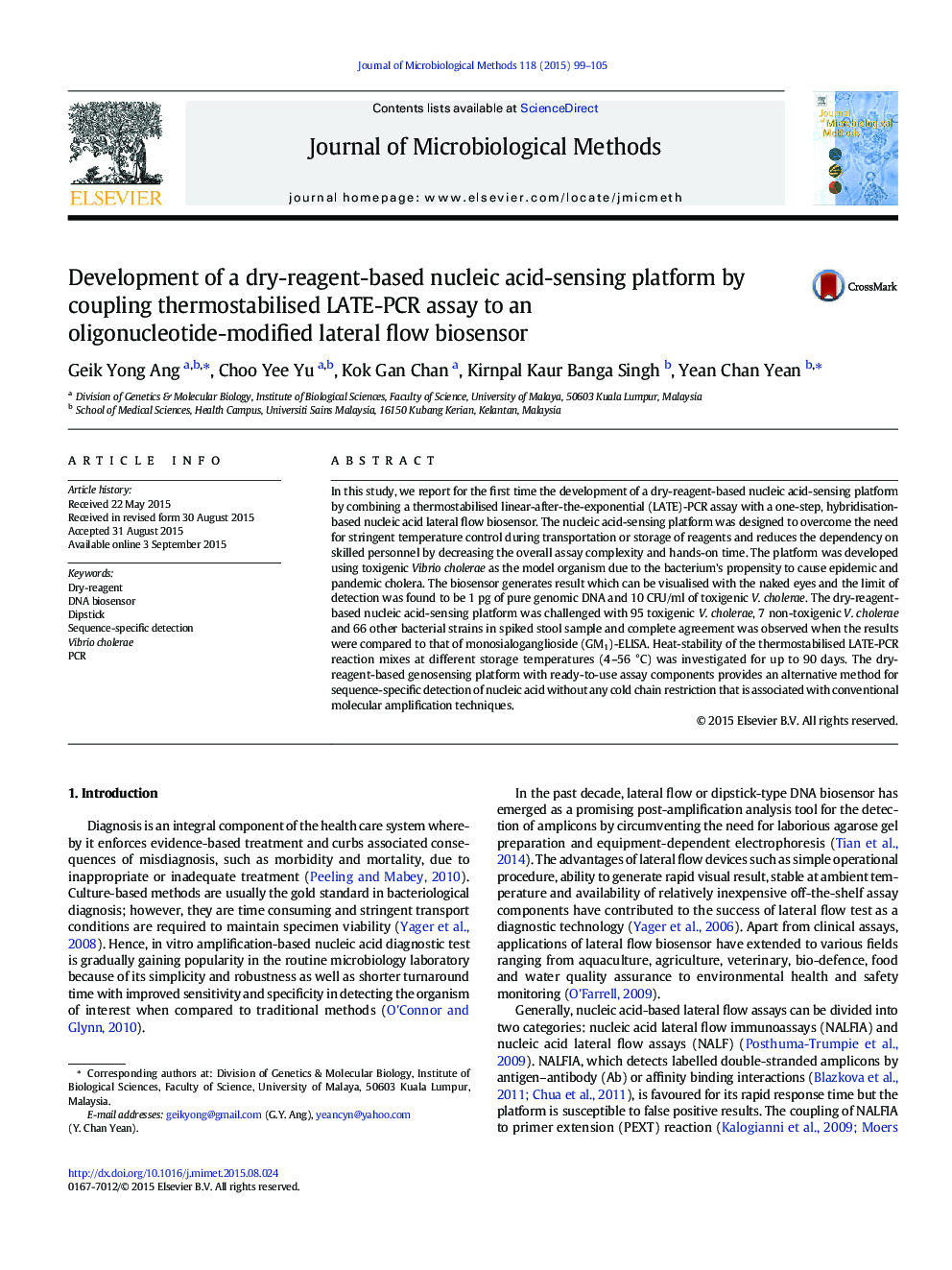| کد مقاله | کد نشریه | سال انتشار | مقاله انگلیسی | نسخه تمام متن |
|---|---|---|---|---|
| 2089762 | 1545925 | 2015 | 7 صفحه PDF | دانلود رایگان |

• A completely dry-reagent-based platform for nucleic acid sensing
• A cold chain-free and simplified method for nucleic acid amplification
• Sequence-specific detection of amplicons by nucleic acid lateral flow device
• Detection of toxigenic Vibrio cholerae
In this study, we report for the first time the development of a dry-reagent-based nucleic acid-sensing platform by combining a thermostabilised linear-after-the-exponential (LATE)-PCR assay with a one-step, hybridisation-based nucleic acid lateral flow biosensor. The nucleic acid-sensing platform was designed to overcome the need for stringent temperature control during transportation or storage of reagents and reduces the dependency on skilled personnel by decreasing the overall assay complexity and hands-on time. The platform was developed using toxigenic Vibrio cholerae as the model organism due to the bacterium's propensity to cause epidemic and pandemic cholera. The biosensor generates result which can be visualised with the naked eyes and the limit of detection was found to be 1 pg of pure genomic DNA and 10 CFU/ml of toxigenic V. cholerae. The dry-reagent-based nucleic acid-sensing platform was challenged with 95 toxigenic V. cholerae, 7 non-toxigenic V. cholerae and 66 other bacterial strains in spiked stool sample and complete agreement was observed when the results were compared to that of monosialoganglioside (GM1)-ELISA. Heat-stability of the thermostabilised LATE-PCR reaction mixes at different storage temperatures (4–56 °C) was investigated for up to 90 days. The dry-reagent-based genosensing platform with ready-to-use assay components provides an alternative method for sequence-specific detection of nucleic acid without any cold chain restriction that is associated with conventional molecular amplification techniques.
Graphical AbstractA thermostabilised linear-after-the-exponential (LATE)-PCR has been developed and direct detection of the resulting single-stranded LATE-PCR amplicons was achieved with a one-step, hybridisation-based nucleic acid lateral flow biosensor at ambient temperature.Figure optionsDownload as PowerPoint slide
Journal: Journal of Microbiological Methods - Volume 118, November 2015, Pages 99–105